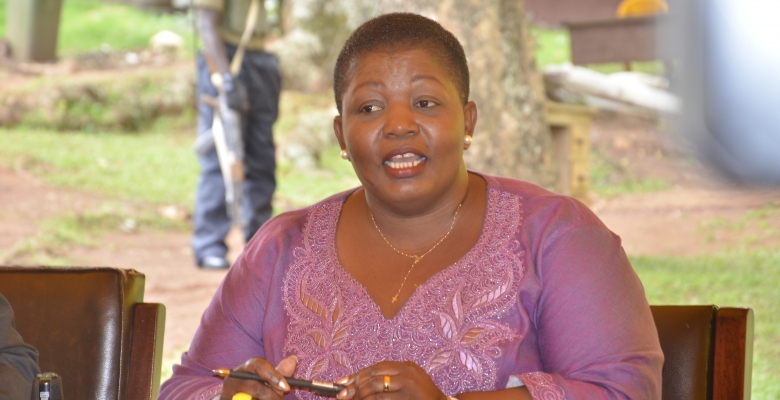Dr Chris Mukiza, UBOS boss speaking during the e-conference
In order to align statistical data in planning to enhance national and regional development, experts have urged statistics users to embrace quality data as evidence to plan better. They have advised all stakeholders to ensure that users in public and private sectors understand the benefit of data if they are to realize their objectives.
During an e-conference on Thursday 27th August 2020 organized by Uganda Bureau of Statistics (UBOS) themed: “The role of statistics in national development and post COVID-19 recovery”, participants were drawn from local government leaders, Bank of Uganda, consultants and officials from Ministry of Finance among others.
The Executive Director, UBOS, Dr Chris Mukiza highlighted the need to measure national progress using national standards indicators. He said that stakeholders need to strengthen statistical systems that will produce equitable statistical data responsible for national, regional and international frameworks to support plans of data users.
“UBOS is committed to strengthen statistical systems to produce statistics that is aligned to the national development plans to track progress. We’ll produce statistics responsible for national development as well as international and regional frameworks,” he said.
Dr Mukiza said that with the negative effects of the global COVID-19 pandemic, there is need to comprehend the benefits of statistics that will give government and private sector support to recover the economy during and post COVID-19 era.
Imelda Atai, the UBOS Deputy Executive Director based at Soroti District regional centre, highlighted that in order to make good decisiosn, there is need to have statistics to determine how to operate. She said the use of indicator figures help in planning the way forward.
A consultant in Statistics, Prof. Ben Kirengeya, confirmed that with the changing economic systems, countries should emphasise the power of partnerships in producing data.
He added that to have quality data, more players are necessary including private and public sources.
“We must ensure we have the right data to the right people and at the right time to have a national statistical system build in planning processes. For data to play its role, it must be good and of high quality,” he said.
He however called upon stakeholders to close gaps existing in statistical systems especially in the informal sector where the majority of youths and women operate.
From the development partners, The UN Resident Coordinator, Rose Malango said that with the significant impact of COVID-19 on the venerable people especially youth and women, economies need to get informed to make right decisions aimed at improving the social-economic plans of administrators.
“Uganda being the 2nd youngest country globally, youth need to use data reports to contribute constructively. Work together to increase alignment of data with national development plans,” she said.
According to UBOS reports, Uganda is the 32nd globally populated country with 41.6 Million people compared to the global 7.8 Billion people. Africa has 1.3 Billion. Out of whole population of Uganda, 51% are female while 49%, are males.





